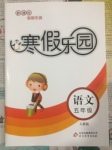题目内容
Walking down the city streets,you look up and see1.red telephone box.Behind it,on the road,a big red double-floor bus passes by,2.(carry) citizens and tourists.This is London.And the red is what the city is famous 3..
Modern transportation has changed the way we lead our lives.One important means of transport has been the bus.In London,buses take on a bigger role.They are used to visit the city.Red tourist buses have open4.(roof), which let people take photos,have an amazing view of the city and enjoy5.(them) as they drive past Big Ben,the Thames and so on.
But how did the bus become unique to London culture?Horse-drawn buses enjoy a history of more than 180 years.They6.(use) in London since 1829.By the early 20th century,motor-buses were driving around London.Bus companies used different colors at the time.One of the7.(big) companies chose red because the bright colour made8.easy for the citizens to pick out the bus.In 1933,when London transport was grouped into a single company,they chose the most9.(wide)used color at the time-red.
And so the color red stayed in London.But it was in the mid-1950s10.the red double-floor was born.Its name is the Routemaster.Built between 1954 and 1968,they still look traditional.Like they have been frozen in time.
 寒假乐园北京教育出版社系列答案
寒假乐园北京教育出版社系列答案
